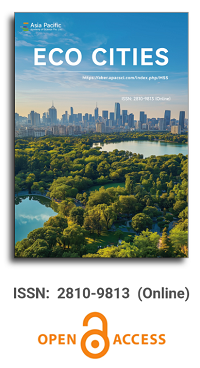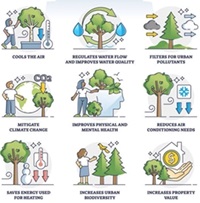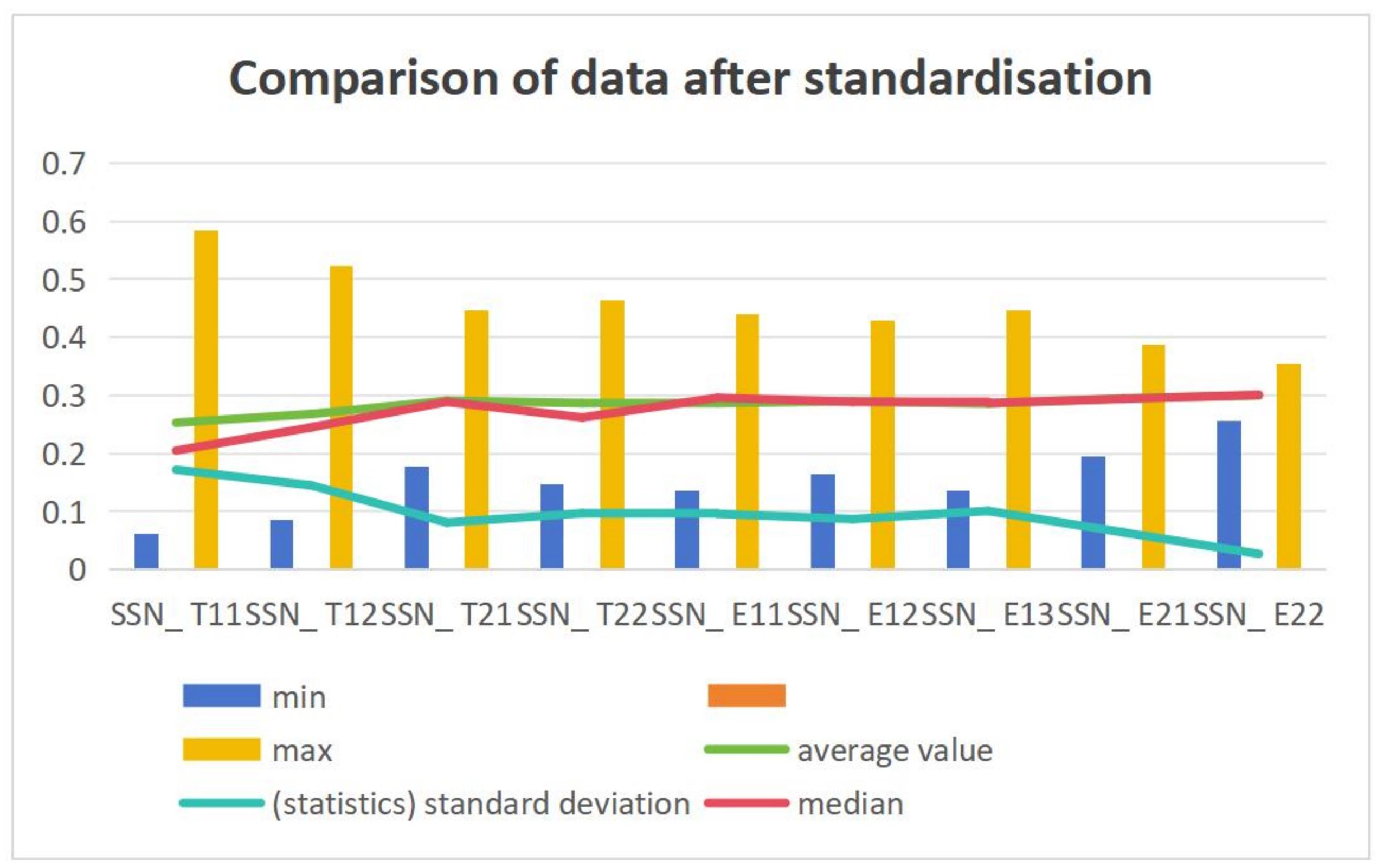


‘Work it and take care of it’ (Genesis 2:15): Investigating contemporary ecocide in Nigeria and the need for a legal policy
Vol 5, Issue 2, 2024
Download PDF
Abstract
This paper explores the imperative for a legal policy addressing the ecological crisis in Nigeria, drawing insights from the biblical perspective of Genesis 2:15. This study adopted the narrative method with data gotten from literature and analysed using content analysis. Scholarly publications on ecological crises abound; however, this study goes a step further by providing responses from a legal and theological lens. Findings show that in Nigeria, large-scale deforestation, often driven by logging, agricultural expansion, and urbanisation, has contributed to the loss of critical ecosystems, wildlife habitats, and biodiversity. Rapid industrialisation and urbanisation in Nigeria have resulted in air pollution, primarily in major cities. The study advocates for the development and implementation of laws that address destruction of the environment, emphasising the interconnectedness of legal, ethical, and biblical principles in fostering sustainable environmental policies for Nigeria.
Keywords
References
- Lindgren T. Ecocide, genocide and the disregard of alternative life-systems. The International Journal of Human Rights. 2017; 22(4): 525-549. doi: 10.1080/13642987.2017.1397631
- European Law Institute. Ecocide. Available online: https://www.europeanlawinstitute.eu/projects-publications/completed-projects/ecocide/ (accessed on 3 May 2024).
- Mehta S, Merz P. Ecocide – a new crime against peace? Environmental Law Review. 2015; 17(1): 3-7. doi: 10.1177/1461452914564730
- Akpenpuun J, Dewua E, Mpem T, Nda F. Bush Burning: Implications for Crop Yield and Sustainable Livelihood of Farmers in Benue State, Nigeria. JMGS. 2023; 3(2): 1-20.
- Pereira R. After the ICC Office of the Prosecutor’s 2016 Policy Paper on Case Selection and Prioritisation: Towards an International Crime of Ecocide? Criminal Law Forum. 2020; 31(2): 179-224. doi: 10.1007/s10609-020-09393-y
- Ordinioha B, Brisibe S.The human health implications of crude oil spills in the Niger delta, Nigeria: An interpretation of published studies. Nigerian Medical Journal. 2013; 54(1): 10. doi: 10.4103/0300-1652.108887
- Ordinioha B, Brisibe S. The human health implications of crude oil spills in the Niger delta, Nigeria: An interpretation of published studies. Nigerian Medical Journal. 2013; 54(1): 10. doi: 10.4103/0300-1652.108887
- Saint E. Timeline: Half a century of oil spills in Nigeria’s Ogoniland. Available online: https://www.aljazeera.com/features/2022/12/21/timeline-oil-spills-in-nigerias-ogoniland (accessed on 3 May 2024).
- Aliyu AA, & Amadu L. Urbanization, cities, and health: the challenges to Nigeria-a review. Annals of African medicine. 2017; 16(4): 149.
- Ahmed F, Ali I, Kousar S, et al. The environmental impact of industrialization and foreign direct investment: empirical evidence from Asia-Pacific region. Environmental Science and Pollution Research. 2022; 29(20): 29778-29792. doi: 10.1007/s11356-021-17560-w
- AbdelRahman MAE. An overview of land degradation, desertification and sustainable land management using GIS and remote sensing applications. RendicontiLinceiScienzeFisiche e Naturali. 2023; 34(3): 767-808. doi: 10.1007/s12210-023-01155-3
- Clandinin DJ, & Connelly FM. Narrative Inquiry: Experience and Story in Qualitative Research. San Francisco: Jossey-Bass; 2000.
- Wajim J. Impacts of Deforestation on Socio-Economic Development and Environment in Nigeria. The International Journal of Social Sciences and Humanities Invention. 2020; 7(03): 5852-5863. doi: 10.18535/ijsshi/v7i03.04
- Barigbon CB. State-Corporate environmental crime and human security in the Niger Delta, Nigeria. Journal of Global Social Sciences. 2023; 4(14): 21-43. doi: 10.58934/jgss.v4i14.151
- Clandinin DJ, & Connelly FM. Narrative Inquiry: Experience and Story in Qualitative Research. San Francisco: Jossey-Bass; 2000.
- Harwood, T. G., & Garry, T. An overview of content analysis. The marketing review. 2003; 3(4): 479-498.
- Obi A. Ecocide As Crime Against Humanity: A Paradigm Shift in Environmental. Available online: https://www.nigerianjournalsonline.com/index.php/LASJURE/article/view/2957 (accessed on 3 May 2024).
- Leen S. Urban Threats. Available online: https://www.nationalgeographic.com/environment/article/urban-threats (accessed on 3 May 2024).
- Faria D, Morante-Filho JC, Baumgarten J, et al. The breakdown of ecosystem functionality driven by deforestation in a global biodiversity hotspot. Biological Conservation. 2023; 283: 110126. doi: 10.1016/j.biocon.2023.110126
- Audu IA, & Adie LA. Desertification in Northern Nigeria: Causes and Consequences. The Environmental Studies. 2018; 1: 20-37.
- Aluko OJ, Bobadoye AO, Shaib-Rahim HO, et al. Perceived effect of bush burning on household livelihood security in Agaie Local Government Area of Niger State, Nigeria. Journal of Research in Forestry, Wildlife and Environment. 2019; 11(3): 48-56.
- Akpenpuun J, Dewua E, Mpem T, Nda F. Bush Burning: Implications for Crop Yield and Sustainable Livelihood of Farmers in Benue State, Nigeria. JMGS. 2023; 3(2): 1-20.
- Nwafor J. Gas Flaring in the Niger Delta Harming Health, Climate and Environment. Available online: https://earthjournalism.net/stories/gas-flaring-in-the-niger-delta-harming-health-climate-and-environment (accessed on 3 May 2024).
- Ojewale O. Are Nigeria’s promises to end gas flaring merely hot air? Available online: https://issafrica.org/iss-today/are-nigerias-promises-to-end-gas-flaring-merely-hot-air (accessed on 3 May 2024).
- Anadu PA. Wildlife conservation in Nigeria: Problems and strategies. The Environmentalist. 1987; 7(3): 211-220. doi: 10.1007/bf02233594
- Voumik LC., Sultana T. Impact of urbanization, industrialization, electrification and renewable energy on the environment in BRICS: fresh evidence from novel CS-ARDL model. Heliyon. 2022; 8(11): e11457. doi: 10.1016/j.heliyon.2022.e11457
- Nate H. Adam’s Work (Genesis 2:15). Available online: https://www.nateholdridge.com/blog/adams-work-genesis-2-15 (accessed on 3 May 2024).
- Wines A. Commentary on Genesis 2:15-17; 3:1-7. Available online: https://www.workingpreacher.org/commentaries/revised-common-lectionary/first-sunday-in-lent/commentary-on-genesis-215-17-31-7-5 (accessed on 3 May 2024).
- Krippendorff K. Content analysis. International encyclopedia of communication. 1989; 1(1): 403-407.
- White MD, Marsh EE. Content Analysis: A Flexible Methodology. Library Trends. 2006; 55(1): 22-45. doi: 10.1353/lib.2006.0053
- Ite AE, Ufot UF, Ite MU, et al. Petroleum industry in Nigeria: Environmental issues, national environmental legislation and implementation of international environmental law. American Journal of Environmental Protection. 2016; 4(1): 21-37.
- Ogbonnaya U. Environmental Law and Underdevelopment in the Niger Delta Region of Nigeria. African Research Review. 2011; 5(5). doi: 10.4314/afrrev.v5i5.7
- Ibunge B. Adopt Ecocide as International Crime, Environmentalist Urges. Available online: https://www.thisdaylive.com/index.php/2022/06/07/adopt-ecocide-as-international-crime-environmentalist-urges/#google_vignette (accessed on 3 May 2024).
Supporting Agencies
Copyright (c) 2024 Favour Chukwuemeka Uroko, Maria Nneka Agbasianya
License URL: https://creativecommons.org/licenses/by/4.0/

This site is licensed under a Creative Commons Attribution 4.0 International License (CC BY 4.0).

Chinese Academy of Sciences, China
Indexing & Archiving
Asia Pacific Academy of Science Pte. Ltd. (APACSCI) specializes in international journal publishing. APACSCI adopts the open access publishing model and provides an important communication bridge for academic groups whose interest fields include engineering, technology, medicine, computer, mathematics, agriculture and forestry, and environment.



.jpg)

.jpg)



